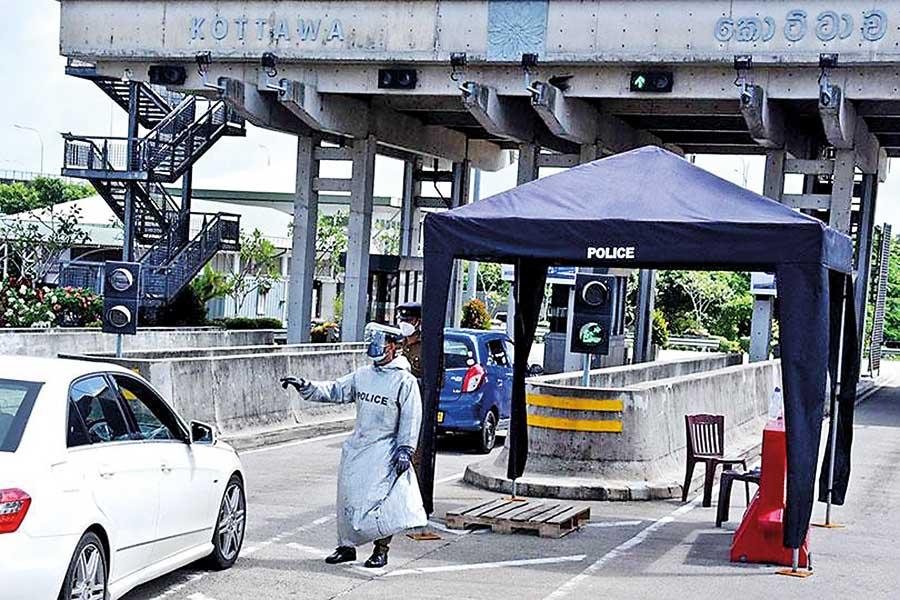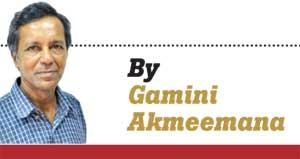14 Jun 2021 - {{hitsCtrl.values.hits}}

This may sound selfish, but there was immense relief and joy in my heart when I heard yesterday that ‘travel restrictions’ (official speak for lockdown) would be lifted on Monday as promised earlier.
restrictions’ (official speak for lockdown) would be lifted on Monday as promised earlier.
Then came the blow to the solar plexus. This Friday afternoon, I heard on the radio that the lockdown would continue till June 21.
The idea is that we should sacrifice our personal freedom for the common good. That was what I have been doing diligently since end of March 2020, and I am tired. Following the rules, avoiding mass gatherings, soaking myself in sanitizer as if it is some kind of ‘holy water’ which can ward off evil and sweating it out with masks at all times. But there’s no end to the nightmare.
In his monumental work the Gulag Archepelago, Alexander Solzhenitsyn wrote about a common occurrence within Stalin’s notorious penal colony system. Millions were sent there with twenty year sentences for imaginary crimes against the state. Sooner or later, many got slapped with another twenty year sentence for even slightly stepping out of line. So many prisoners perished within a few years due to the harshest imaginable living conditions.
I felt like a prisoner unjustly receiving another sentence just as freedom was looming. Anyone who thinks I am overstating things would be a great candidate for the prison system, people who don’t mind being behind bars. It is not for nothing that thinking people struggled for, sometimes at great cost to themselves, guarantees of basic freedom from their rulers. Freedom of speech is one, and the freedom to move about at will is another.
"The COVID pandemic caused governments to curtail this freedom, in particular the freedom of travel, to greater and lesser degrees, all over the world. This was seen as a necessary painful step. But, well into the second year of this nightmare, people have reached a saturation point"
The COVID pandemic caused governments to curtail these freedom, in particular the freedom of travel, to greater and lesser degrees, all over the world. This was seen as a necessary painful step. But, well into the second year of this nightmare, people have reached a saturation point. The worst part is that there’s nothing you can do about it except sit tight and hope for the best.
If anyone accuses me of being indifferent to what is going on, assuredly that is not the case. But I can’t help feeling like a hostage. A kitchen tap is leaking so badly, I have to turn off the main supply line every hour or so. I can’t find a plumber. I know many must be facing worse predicaments. But the worst is being penned in by a rule you can’t argue with.
The medical profession has its back to the wall against this new strain Covid monster, and every other profession which claimed to have contained it early have been left wondering what to do next. But all these bright minds now seem to be unanimous on one thing – grim lockdowns are the most obvious answer to this invisible enemy. If we take the lockdown (or ‘travel restriction’) solution from country to country, we can see that Western countries didn’t go for total, nationwide lockdowns even at the worst stages of the pandemic. Their citizens rate personal freedom so highly that such a move would have caused riots. Indeed, even partial lockdowns caused civil unrest in the Netherlands and France.
"The medical profession has its back to the wall against this new strain Covid monster, and every other profession which claimed to have contained it early have been left wondering what to do next"
In Asia, people respect and fear governmental authority to a greater degree, no matter how much the authorities bungle. But, more than ever, this has become a tradition of paying lip service. Despite the travel restrictions and ubiquitous police checks, many people were moving about – both in vehicles and on foot.
I don’t believe they were simply going out to enjoy the cleaner air. Many were trying to get essential tasks done. In my case, if there had been a plumber in the neighbourhood, I would have asked him to come in, because it is very hard living with a leaking pipe for weeks and weeks. Apart from that, I have absolutely no desire to travel right now. Even without restrictions, I am going to stay home till things get a lot better. On the other hand, many were out begging for money or food. I feed the dogs and cats in my neighbourhood regularly, and met several people - not all of them beggars, who asked me if I had any food to spare. The government can give Rs. 5,000 handouts and claim it had done its bit for the people’s welfare. But such gestures mean little if the country lacks a viable programme that caters not just for the very poor, but those who are unemployed but too proud to beg.
As for the considerable vehicular traffic on the roads, it has been claimed that the traffic jams were caused by people not engaged in essential duties. In the Colombo region, most cars and vans on the roads would belong to the private sector, and those offices do not have redundant staff. If a private office has 30 employees, it is a safe guess that all 30 are essential. It’s the government sector that has redundant staff. Besides, with drastic cuts in salaries and other benefits, employees are very unlikely to be driving for leisure during rush hours. Motorcycles and three wheelers with their engines switched off is a common sight at Colombo traffic lights.
Supposing the infection and death rates continue unabated for another six months, are we going to be in continuous lockdown? This is the worst case scenario. But logic argues that the grim statistics should go down at some point. If that would happen after a few weeks, or months, is anybody’s guess. If the vaccine drive is kept up at least at the current rate that should certainly help at some point. If not, I don’t know what’s going to help us, and the pipe will continue to leak.
23 Oct 2024 36 minute ago
23 Oct 2024 2 hours ago
23 Oct 2024 4 hours ago
23 Oct 2024 6 hours ago
23 Oct 2024 7 hours ago